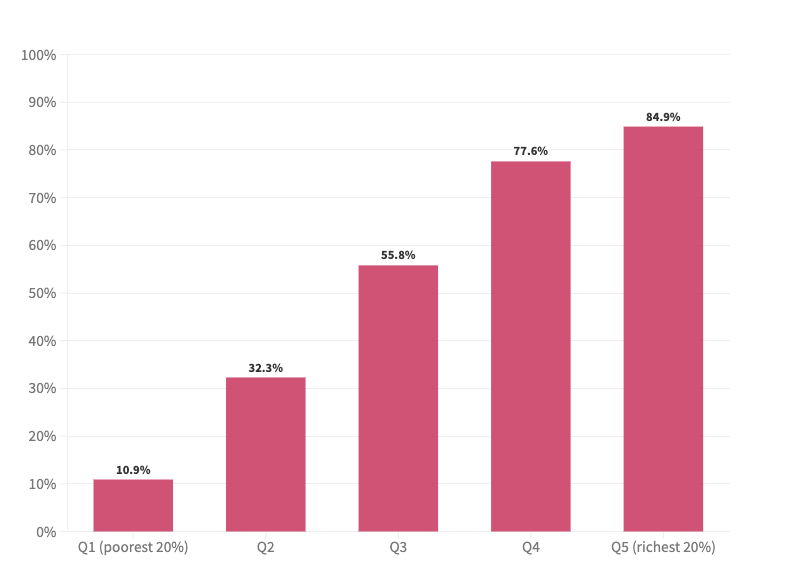Richest families will be eight times more likely to benefit from full roll out of funded childcare hours than poorest
Even among eligible families, those on lower incomes will need to spend a greater proportion of their earnings, analysis by the New Economics Foundation has found
31 July 2025
The richest households in England will be eight times more likely to benefit from the government’s expanded programme of funded childcare hours, analysis by the New Economics Foundation (NEF) has found.
By September, the government will have fully rolled out its latest programme, which provides 30 funded hours for children aged nine months to four years old in families where all parents work at least 16 hours per week.
But researchers have warned that these requirements will deny support to precisely the families who would benefit most and produce the greatest economic benefit.
New research published today shows that only 11% of the poorest households will be eligible for the full expanded hours, while 85% of the richest households will be able to benefit from the package.
The research also shows how childcare will remain unaffordable even for many families who are eligible for support.
The analysis finds that working families receiving £34,000 would have to spend over 11% of their gross earnings to have one child in full-time childcare.
However, a family on £49,000 would need to spend 8% of their earnings and a family on £124,000 would only need to spend 3%.
Instead, researchers have proposed a new model which would be much simpler than current system and help families afford more hours of childcare. It includes:
- 15 hours of free childcare for all children above the age of nine months
- For working families, a cap at 5% of family earnings on the cost of additional all additional hours of childcare they purchase
Tom Pollard, head of social policy at NEF, said:
“Childcare has critical roles to play in both early years development and supporting parents to work. While additional government investment is welcome, it will fail to effectively deliver on these objectives without more fundamental reform.
“The current system is overly complex for parents to navigate, squeezes the budgets of families already struggling with the cost of living crisis, and denies full access for children from the poorest households, even though we know they are the ones who would benefit the most.
“Our proposed system of a universal 15 hours, combined with a cap at 5% of earnings on what working families pay for additional hours, would be simpler, fairer and, for most families, cheaper than the current system.”
ENDS
Contact
James Rush – james.rush@neweconomics.org
Notes
The New Economics Foundation is a charitable think tank. We are independent of political parties and committed to being transparent about how we are funded.
The full analysis is available to read on the NEF website.
Figure 1: Estimated proportion of families in England with children under five years old who meet the eligibility criteria for the expanded funded hours, by quintile of the income distribution.

Source: NEF analysis using Family Resources Survey (FRS).
Topics Childcare






